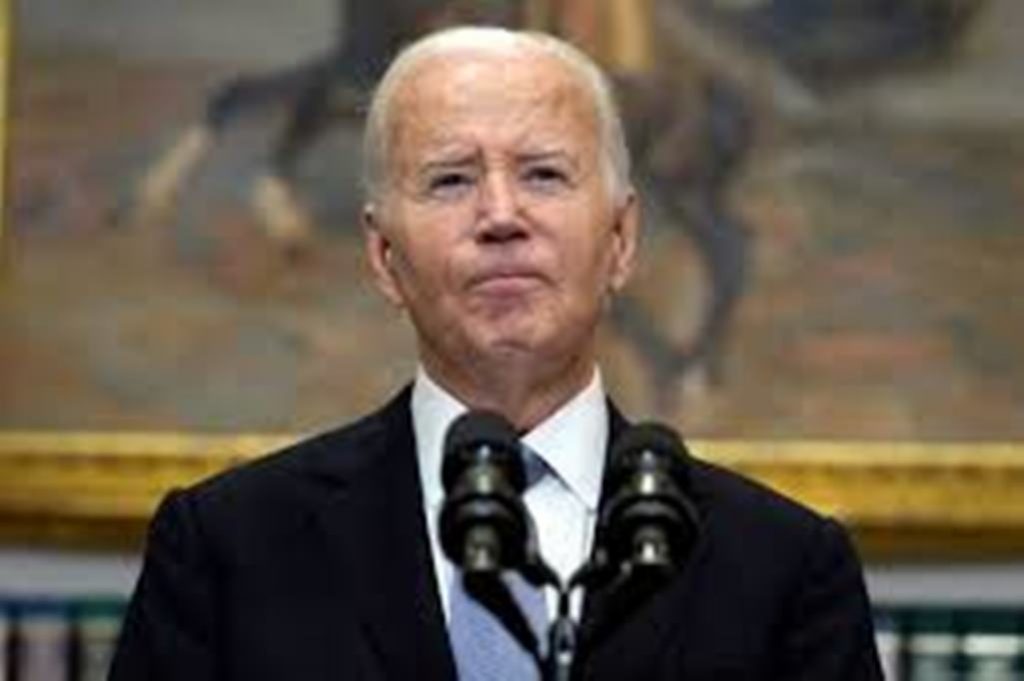Navigating Change: The Implications of President Biden’s Withdrawal from the Presidential Race
 The political scene in the United States is known for its unpredictability, and President Joe Biden’s choice to exit the presidential race has created significant waves within the Democratic Party and the wider political arena. This examination explores the reasons behind this decision and its possible consequences.
The political scene in the United States is known for its unpredictability, and President Joe Biden’s choice to exit the presidential race has created significant waves within the Democratic Party and the wider political arena. This examination explores the reasons behind this decision and its possible consequences.
Although President Biden has made notable strides during his administration, such as the creation of 206,000 new jobs last month, concerns about his age and ability to lead have eclipsed these domestic successes. Public debate has largely ignored these achievements, focusing instead on his physical and mental fitness.
Biden’s age and health have become a central focus, diverting attention from his policy achievements. Each public appearance is analyzed for signs of weakness, with media and public scrutiny fixated on his fitness for office. This relentless examination has fueled the belief that Biden might not be the ideal candidate to lead the Democratic Party in the next election, a perception that is unlikely to shift and remains a major obstacle.
A troubling aspect of Biden’s recent public engagements is the apparent change in his rhetoric. His interview with George Stephanopoulos, where he increasingly spoke in self-referential terms, has raised questions about his motives for remaining in the race. This perceived shift towards narcissism and a sense of personal destiny has undermined public and party trust, further complicating his re-election prospects.
The Democratic Party is experiencing internal tensions. With Congress back in session, conversations about Biden’s future are becoming more urgent. There is a growing sentiment that the party needs a new leader to energize its base and effectively challenge the Republicans. Vice President Kamala Harris, whose approval ratings are gradually improving, could potentially fill this role, offering a fresh start at a crucial time.
John Zogby, founder of the online focus group and political polling service John Zogby Strategies, observes that the media’s intense scrutiny of Biden has worsened the situation. This coverage has painted the Biden family as reluctant to give up power, damaging their public image. Historical comparisons to figures like Václav Havel highlight the corrupting influence of power and the challenge of stepping down once it is acquired.
Examining Biden’s situation alongside past presidents who found it challenging to step down offers valuable historical insights. Whether it’s Ulysses S. Grant’s pursuit of a third term, Teddy Roosevelt’s Bull Moose run, or Franklin D. Roosevelt’s fourth-term triumph, history shows that leaving the presidency often involves complex personal and political issues. Yet, the current context is distinct, with both Biden and former President Donald Trump demonstrating a unique determination to remain politically active.
As demands for Biden to step aside intensify, the Democratic Party confronts a pivotal decision. The necessity for a swift and decisive transition is apparent. In the coming weeks, significant developments are expected, with increased pressure from media and political figures for Biden to withdraw. Successfully navigating this transition will be crucial for the party’s unity and electoral prospects.
In conclusion, President Biden’s choice to exit the presidential race encompasses numerous personal and political complexities and broader dynamics within the Democratic Party and U.S. politics. This decision is poised to significantly impact the 2024 election and the nation’s future trajectory.

Leave a Reply